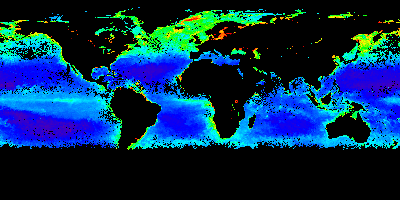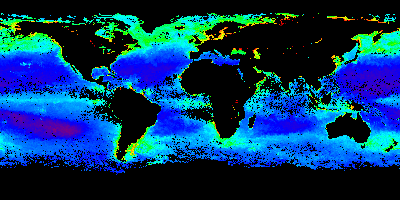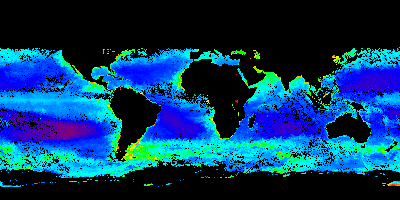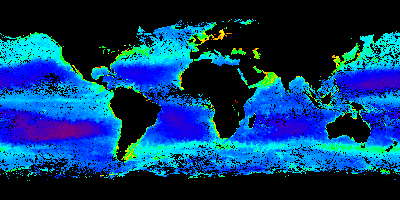6. Plankton Blooms
Changes through the year (2/2)
What else do the images tell us?
The black areas near the north and south poles tell us about light levels in these regions during the year.
The satellite passes over at pretty much the same time each day. The equator crossing time is 1.30 pm local time, so a rough estimate of the crossing time near the poles will be about 30 minutes either side of this.
Does the fact that an image is black mean that there is no light at all in those regions? Actually it can mean that there is not enough light to make useful measurements of ocean colour at the time that the satellite passed over.
The patchy black areas over the oceans are cloud. This means that the clouds are present throughout a month. But does it mean that the clouds are there all day long each day? This is quite likely is some areas, but we need other data to tell us if this is the case.
Can phytoplankton grow under cloud? Just as on land plants grow on cloudy days, we expect phytoplankton to carry on growing under cloud.





